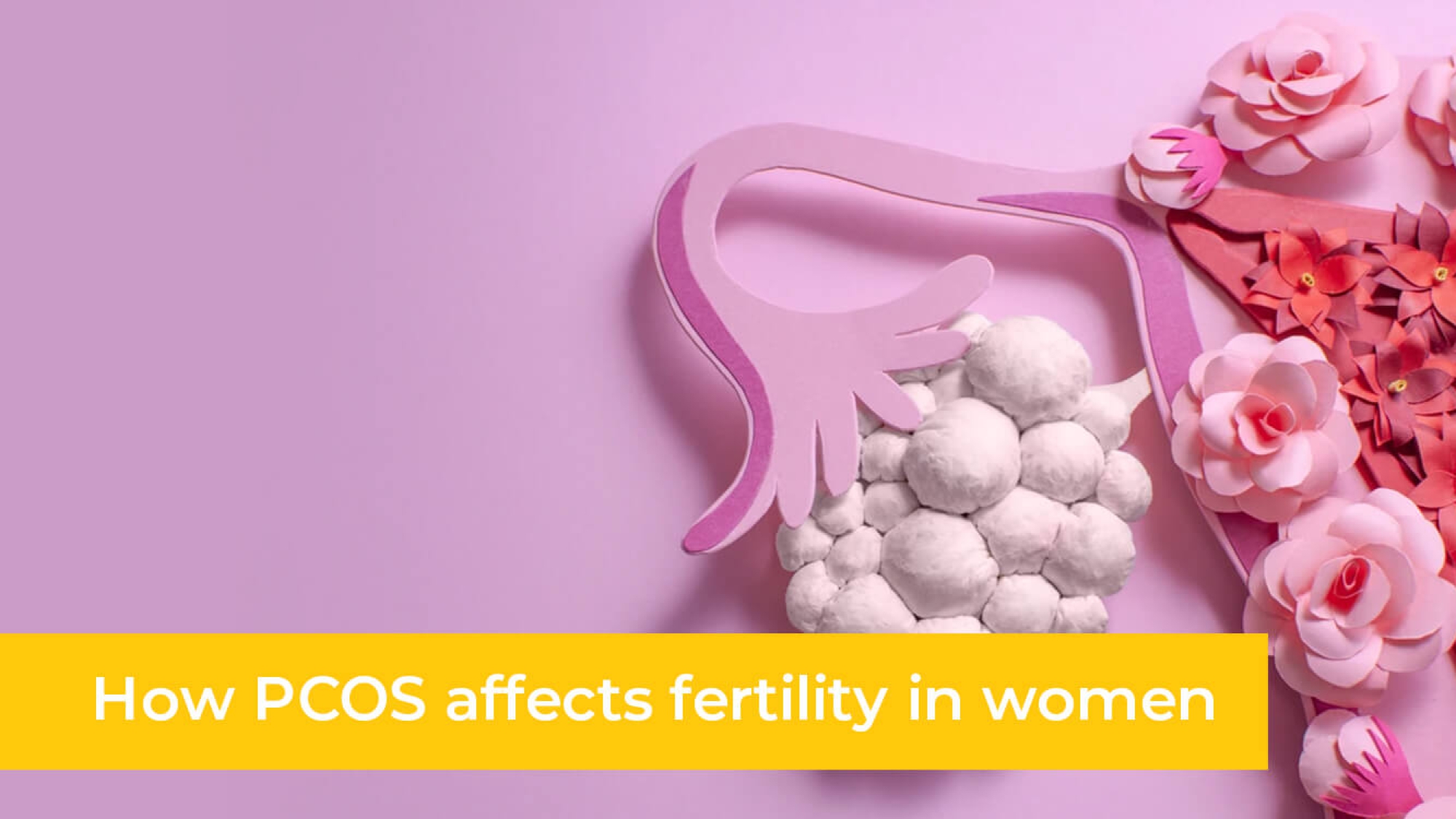Polycystic ovarian syndrome (PCOS) is a common health problem caused by an imbalance in the secretion of reproductive hormones. This hormonal imbalance creates problems with ovarian function and ovulation. The ovaries normally produce one egg every month that is released as part of a healthy menstrual cycle. With PCOS, the egg may not develop as it should or it may not be released during ovulation as it should be. Getting pregnant with PCOS may seem improbable. But fortunately, most women with PCOS are able to get pregnant after proper medication.
PCOS and infertility share a close relationship. PCOS can cause absence of periods [ amenorrhoea ] or irregular menstrual periods. This leads to :
- Infertility (inability to get pregnant). In fact, PCOS is one of the most common causes of infertility in women.
- Development of cysts (small fluid-filled sacs) in the ovaries
Who gets PCOS?
Between 10 % and 15% of women between 15 and 44, have PCOS. Most women find out they have PCOS in their 20s and 30s, when they realise that getting pregnant with PCOS can be challenging. But PCOS can happen at any age after puberty.
PCOS and Infertility:
It is a well-established fact that getting pregnant with PCOS is a difficult task. While PCOS affects the development and release of the mature egg, the hormonal imbalance and the increase male sex hormone called testosterone also affects the lining of the uterus, which prevents implantation of the egg and leads to excessive facial hair growth.
How does PCOS affect Pregnancy?
Women with PCOS have higher rates of:
- Miscarriage
- Gestational diabetes
- Preeclampsia
- Cesarean section
PCOS Causes:
The exact cause of PCOS is not known. Current evidence suggests that PCOS causes multifactorial; that several factors, including genetics, playing a role:
- High levels of androgens or “male hormones”. Women with PCOS have more androgens than normal. Higher than normal androgen levels in women can prevent the ovaries from releasing an egg (ovulation) during each menstrual cycle, and can cause extra hair growth and acne, two signs of PCOS.
- High levels of insulin. Insulin resistance is when the body’s cells do not respond normally to insulin. As a result, insulin blood levels become higher than normal. Many women with PCOS have insulin resistance, especially those who have overweight or obesity, have unhealthy eating habits, do not get enough physical activity, and have a family history of diabetes (usually type 2 diabetes).
PCOS Symptoms:
Although PCOS causes and symptoms may differ from person to person, the most common polycystic ovary symptoms are as follows:
- Hair loss
- Acne
- Hirsutism – excessive body hair
- Pelvic pain
- Weight gain
- Irregular periods
- Infertility
- High levels of testosterone
Other less common symptoms can exist too. However, look out for these PCOS symptoms to get diagnosed for PCOS.
Treatment of PCOS:
For most women with PCOS, there is no permanent cure. However, the symptoms can be controlled and managed.
- Lifestyle change can decrease PCOS symptoms to a large extent. Studies have shown that weight loss of even 5% can show significant improvement in the condition. A healthy balanced diet, a good exercise routine, and refraining from drinking alcohol and smoking can improve your overall physical and mental health. In some cases, a dietician may also prove to be a great investment to control the condition.
- Birth control pills or progesterone will help with the imbalance of hormones and regularize menstrual cycles.
- Medications to control insulin resistance (Metformin), testosterone levels (Anti androgen medicines).
- Ovulation Induction : Disorders of egg production can be treated with various drugs – Clomiphene Citrate, Aromatase inhibitors, Gonadotropins. These are started in a lower dose which is increased in a stepwise fashion if the response is inadequate.
- Laparoscopic Ovarian Drilling (LOD) : This is an option for women who do not respond by ovulating to drugs. It is a minor surgical procedure, where a few holes are drilled in the ovaries with the help of laparoscopy. However, surgery can restore ovulation in some patients only and there is a risk of permanent damage to ovarian function leading to premature ovarian failure.
- In vitro fertilization (IVF): IVF is the preferred option if medicines do not work or when there are additional causes of infertility or when the woman is older. Women with PCOS respond well to IVF treatment. In fact, pregnancy and live birth rates following IVF in women with PCOS are similar to others.
PCOS affects physical appearance as well as the mental health of many women across the world. While the patient feels discouraged when they first receive the diagnosis, they should remember that the condition can be treated and managed. Getting pregnant with PCOS is possible and very much achievable.
With the right set of medication, medical care, determination, and support, it will no longer be an obstacle in the way of you leading a normal life or becoming a mother.
